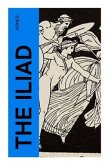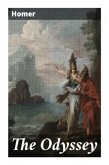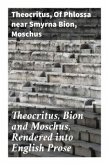In "The Clouds," Aristophanes presents a satirical exploration of Athenian society, focusing on the conflict between traditional values and the emerging philosophical thought of his time, particularly represented by Socrates. The play follows the character Strepsiades, who enrolls his son in a sophistic school led by Socrates to escape his debts. Through sharp wit and clever dialogues, Aristophanes employs a distinctive blend of comedy and social critique, utilizing caricatures and absurdity to challenge the intellectual trends of the 5th century BCE, while also lampooning societal norms and parental authority. Aristophanes, often hailed as the father of comedy, was a prominent figure in ancient Greek literature whose works reflect the political and social climate of Athens during the Peloponnesian War. His exposure to contemporary philosophical debates and the growing influence of sophistry likely inspired "The Clouds," as he sought to illuminate the implications of such thoughton moral ethics and civic responsibility. His unique blend of humor and incisive commentary places him as a critical observer of his time. "The Clouds" is a must-read for anyone interested in the interplay of humor and philosophy, as well as the origins of Western comic tradition. Aristophanes' masterful use of satire not only entertains but also provokes thought regarding the importance of wisdom and virtue in turbulent times, making this play a timeless commentary on the pursuit of knowledge.
Bitte wählen Sie Ihr Anliegen aus.
Rechnungen
Retourenschein anfordern
Bestellstatus
Storno








